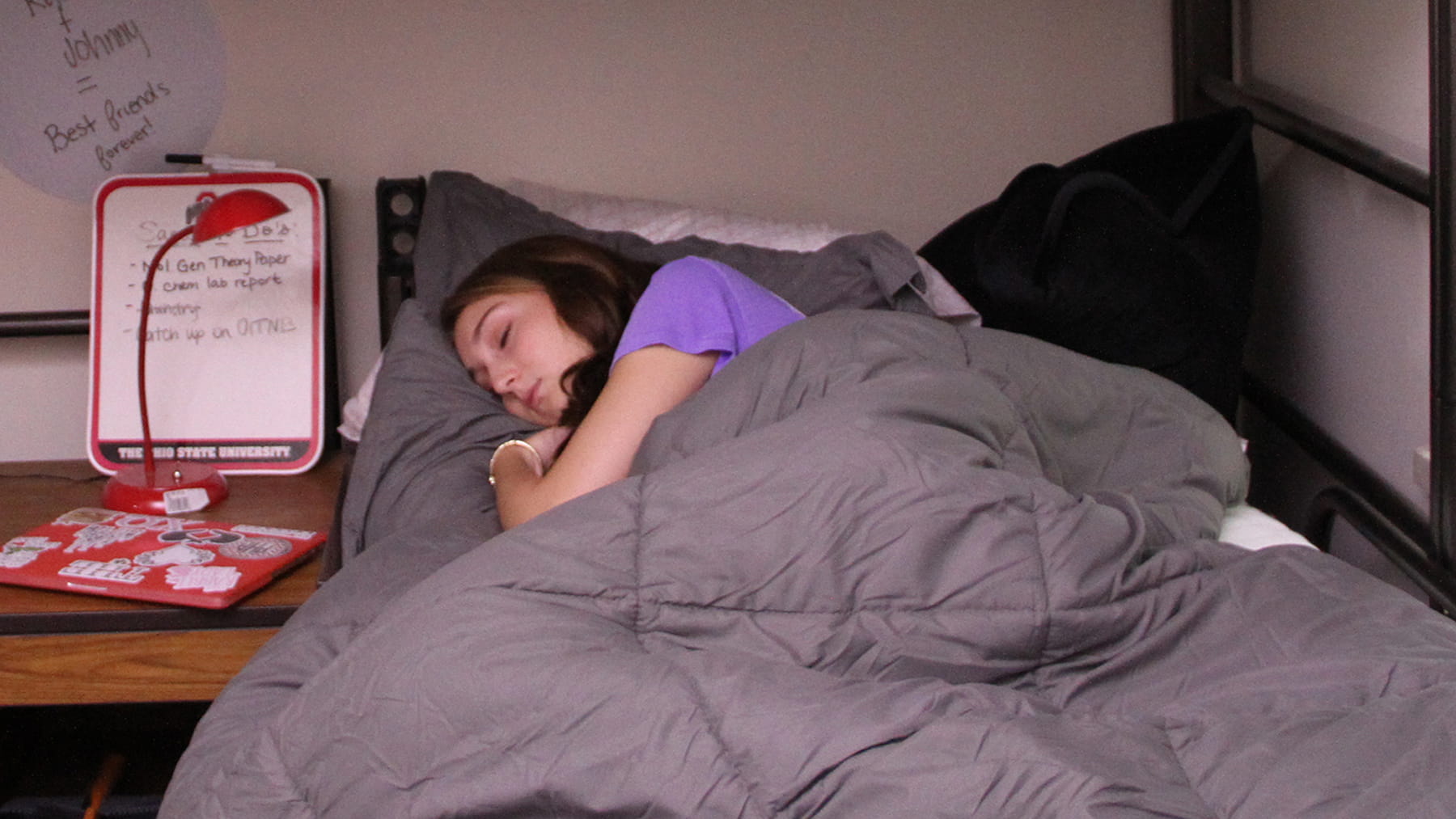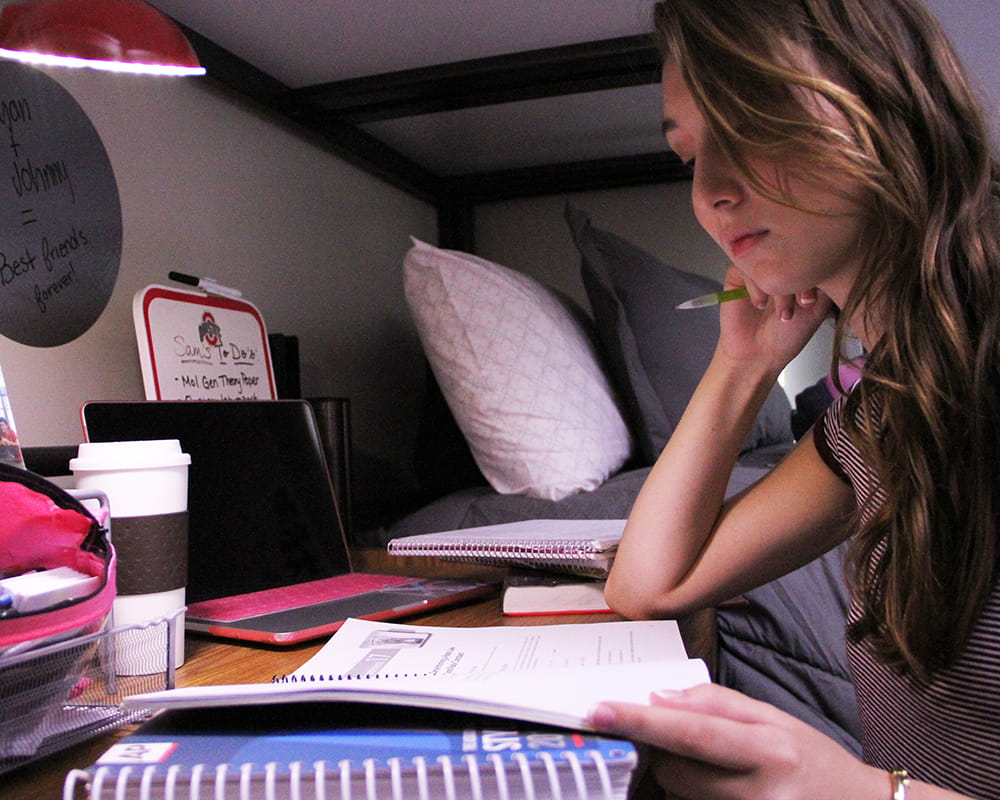A crash course in sleep dos and don'ts for college students
 You hear a lot of sleep advice for young children and overextended adults. Now our sleep expert has tips for another group that doesn’t get as much attention on this topic: new college students.
You hear a lot of sleep advice for young children and overextended adults. Now our sleep expert has tips for another group that doesn’t get as much attention on this topic: new college students.
If your son, daughter or someone else you know is headed to college this fall, pass on these tips from Dr. Aneesa Das, who meets regularly with students at The Ohio State University to help them learn one of the hardest lessons of college: how to manage a good sleep schedule.
The first rule: Resist the urge to procrastinate and pull an all-nighter!
“When you are sleep-deprived, you don’t think as clearly. Staying up all night to study can backfire and affect performance on exams,” says Dr. Das, assistant director of the Sleep Disorders Center at the Wexner Medical Center.
With a new roommate, a new bed, new noises, new freedoms and no parents around, the college student in your life needs this info:
- DO turn your room into a cave. Well, sort of. Keep it cool, dark and quiet.
- DON’T try to sleep with the TV on or use your tablet or phone in bed. Our experts’ research shows how devices’ blue light disrupts sleep.
- DO try using eyeshades if your roommate still needs to work when it’s your bedtime.
- DON’T rely on pills to get you to sleep or caffeine to keep you going. Both can mask a bigger sleep problem.
- DO allow 30 minutes to relax before bed after finishing your work.
- DON’T nap after 4 p.m. Your snooze should last no longer than 30 minutes to avoid that groggy feeling when you’re awakened suddenly during your sleep cycle.
- DO get some bright light as soon as you wake up. This will help you be alert for those 8 a.m. classes!
- DO exercise during the day because it can help the body wind down for sleep at night.
- DO take a warm shower two hours before bedtime. The natural cooling of your body over those couple of hours encourages sleep.
Ashlee Chadwick, a sophomore at Ohio State, says she has faced all-nighters for midterms and she definitely had to get adjusted to sleeping in a dorm.
“It’s hard getting used to all of those noises from people in the hall or next door, and I lived right next to the stairwell. Plus, I wasn’t used to my roommate shifting in the bed above me,” she says.
Dr. Das notes that chronic lack of sleep makes people more vulnerable to diseases such as high blood pressure, heart disease and diabetes. So developing good sleep habits early can have a life-long impact.
"A bad night’s sleep or chronically not getting enough sleep can affect every aspect of our lives."
“It can affect how we perform in school, our immunity and our emotions," Dr. Das says. "When we’re tired, we’re more prone to infections, more likely to get into arguments and less likely to participate in activities we enjoy.”
While some sleepless nights are not unusual, chronic sleep deprivation can be the result of a sleep disorder.





